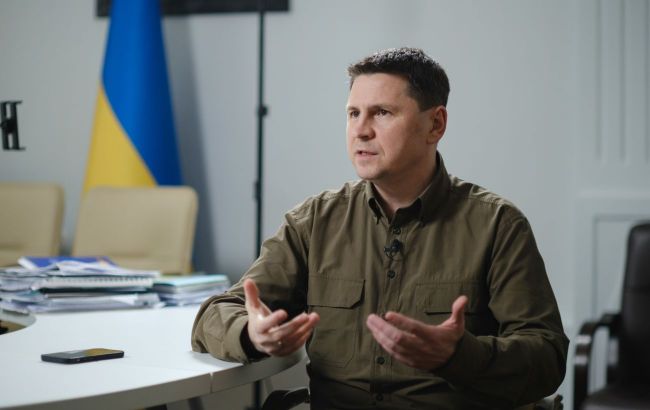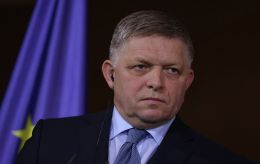Could Russia agree to air ceasefire with Ukraine? Presidential Office weighs in
 Photo: Mykhailo Podolyak, advisor to the Head of the Presidential Office (Vitalii Nosach, RBC-Ukraine) Спросить ChatGPT
Photo: Mykhailo Podolyak, advisor to the Head of the Presidential Office (Vitalii Nosach, RBC-Ukraine) Спросить ChatGPT
Russia is unlikely to stop missile and long-range drone strikes on Ukraine. Terrorizing civilians is one of its tools of war, said Mykhailo Podolyak, advisor to the head of the Ukrainian Presidential Office, in a comment to RBC-Ukraine's YouTube channel.
According to him, Russian President Vladimir Putin currently relies on two main instruments of war. The first is genocidal strikes — concentrated and large-scale attacks on civilian infrastructure and the population to terrorize Ukrainians. The second is manpower, which Russia has in abundance and at low cost.
He clarified that the first tool creates a media-driven propaganda reality, while the second isn’t publicly showcased. For Russia, it’s important to show its dominance in the war.
"I think giving up a key instrument of war would be a partial freeze, but it brings Russia no real benefits. They still fail to achieve Putin’s objectives — even though those goals are impossible — and they also lose their media influence," Podolyak said.
He also noted that Putin could propose a ceasefire at sea, as Moscow had previously proposed such an idea during talks with the United States. However, the Kremlin demanded that Ukraine completely withdraw from the Black Sea.
By the same logic, Russia could demand that Ukraine refrain from striking Russian territory, while continuing its attacks on the civilian infrastructure of Ukraine.
"Russia cannot, does not want to, and will not leave the war without being forced to. First the money, then the chairs. Same here — first, tough and destructive sanctions, especially secondary sanctions that restrict trade for countries like India, China, or Brazil. Only after that can negotiations happen. Otherwise, nothing will work," he emphasized.
Rumors of an air ceasefire
Bloomberg earlier reported, citing sources, that Russia might agree to an air ceasefire with Ukraine.
According to the outlet, Moscow could be trying to please US President Donald Trump to prevent him from imposing secondary tariffs.

